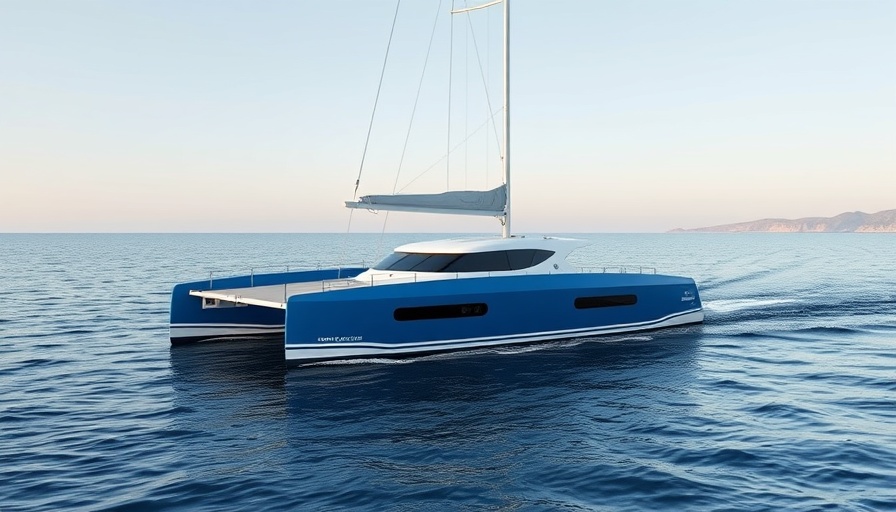
Charting New Waters: The Future of Nuclear Power in Maritime
In a move that marks a significant step forward for maritime energy solutions, ABB has officially partnered with Blykalla, a Swedish nuclear energy innovator, to introduce nuclear propulsion systems for commercial vessels. As the global maritime industry faces increasing pressure to transition to cleaner energy sources, this collaboration demonstrates how cutting-edge technology can reshape the future of shipping.
Exploring the Potential of Small Modular Reactors
The partnership focuses on the development of small modular lead-cooled reactors (SMRs), with Blykalla's SEALER technology standing at the forefront. Designed to be compact yet powerful, these 55 MWe reactors have undergone over two decades of research, positioning them as safe and scalable energy solutions for maritime applications. Such advancements come at a crucial time, as the shipping industry seeks to adhere to stricter emissions regulations.
Implications for Clean Energy Adoption in Shipping
ABB's expertise in system integration is paramount in ensuring the successful application of nuclear solutions within ship designs. Juha Koskela, president of ABB’s Marine & Ports division, noted that SMRs can significantly reduce emissions compared to conventional carbon-based fuels. This initiative echoes the recent approval by the International Maritime Organization to amend safety codes for nuclear merchant ships, reflecting a wider acceptance and integration of advanced energy solutions within maritime operations.
Revolutionizing Maritime Transport with Innovation
As Blykalla expands its reach into the maritime sector, the collaboration aims not just to advance nuclear technology but also to foster a supportive ecosystem among industry players. Jacob Stedman, Blykalla's CEO, emphasizes the necessity of collaborative efforts in achieving a sustainable maritime future. This aligns with a broader industry trend that recognizes the potential of nuclear energy to serve as a backbone for clean naval transport.
What This Means for the Future of Shipping
With the maritime industry facing an unprecedented challenge to decarbonize, the intersection of nuclear technology and shipping could pave the way for greener operations. For shipyard employees and industry stakeholders, this partnership signals an essential shift in how vessels may be powered in the upcoming years. Innovative designs powered by next-generation SMRs could lead to unprecedented reductions in maritime greenhouse gas emissions.
Local and Global Perspectives: Navigating Energy Transition
This development reinforces a growing global narrative about sustainable energy solutions, pushing the industry away from traditional fuel sources toward something radically different. As countries turn to nuclear to meet their energy needs, the maritime sector can leverage these advancements to stay ahead of compliance issues and appeal to environmentally conscious consumers.
Taking Action: What Stakeholders Need to Consider
Industry players must recognize the transformative potential of these technologies and consider partnerships that reflect a commitment to innovation and sustainability. Moving forward, it will be critical for stakeholders, including shipyards, operators, and regulators, to engage in dialogues that assess the practical implications and risks associated with the deployment of nuclear power in maritime transportation.
This promising partnership between ABB and Blykalla signals a pivotal moment in the maritime industry’s shift towards cleaner energy, illustrating how collaboration can lead to innovative solutions that address the pressing need for sustainability.
 Add Row
Add Row  Add
Add 




Write A Comment